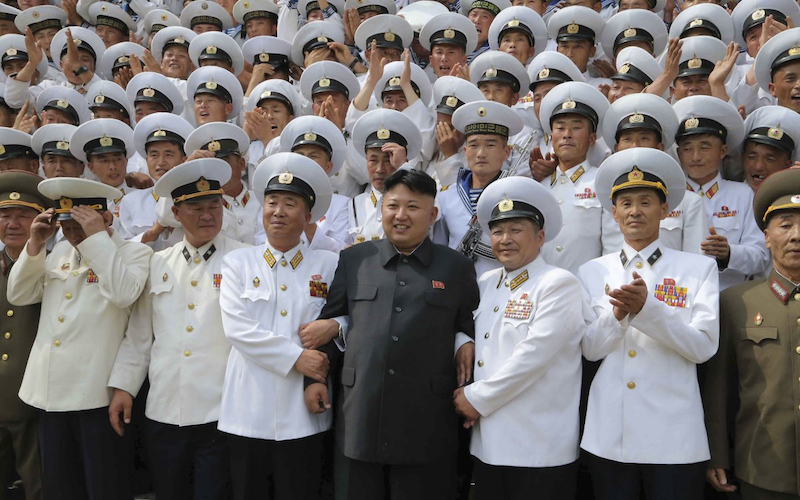
Want to Stop a Nuclear War? It’s Time to Rethink the Global System
The Treaty of Westphalia (1648) ended the norms of European political discourse that had been held essentially since Charlemagne. No longer was the fealty of a people tied to a family, but instead to the nation-state. But this was not the end of the development of the world system that is still in place today.
The multipolar world where political, economic, and military might was split among countries like France, Russia, the Hapsburg Empire, and Spain meant that there were constant wars between the great powers of the day. There was a system determining sovereignty, but the international system, as we political scientists like to say, was anarchic. That’s how you ended up with the First Anglo-Dutch War, the Anglo-Spanish War, The Second Northern War, the Franco-Dutch War, the Nine Years’ War, the War of Jenkin’s Ear, and the Seven Years’ War.
The list could go on, and yet after the French Revolution (1789–1799) and its associated wars and finally the defeat of Napoleon Bonaparte in 1815 at the Battle of Waterloo, the world entered an era known as the Biedermeier period from 1815–1848. One of the defining features of this period was its lasting peace between the great powers of Europe. This peace, known as the Concert of Europe or the Vienna System saw relatively little violence.
The Crimean War brought the music to an end. However, an allied force lead by the United Kingdom made sure that the status quo was upheld, and that’s the key to understanding the modern notion of sovereignty beyond, that most beloved treaty, Westphalia. The United Kingdom had been committed to keeping the peace after the defeat of Napoleon, it became the world’s first policeman, until 1946 with the ascension of the United States as the new World Policeman (along with the Soviet Union). The key to having a stable world system with the variety of linkages between countries and industrialization is the unification of states around a leader. When there are too many centers of power the system falls apart. Pre-World War I Europe is a perfect example of how the old system was torn apart by too many European empires.
What does that mean for us today? Since the Cold War ended, the United States was the sole global policeman, and yet the rise of the BRICs (Brazil, Russia, India, and China) essentially put an expiration date on the U.S. global hegemony. Their larger share of the global economy and increased political presence mean that in terms of the political pie, there is a smaller share left for the United States. Keep in mind that two of the countries comprising the BRICs are non-democratic and frequently at odds with the interests of western democracies.
The question for the United States is are we up to the task of keeping the peace in 2017? The question is fundamental to the survival of this global system. In order to prevent war, we have to unite around common ideas of peace, liberty, and democracy, and inclusion in the global system that cannot be voided in the approaching second decade of the 21st century. We cannot afford to seclude ourselves, and yet also rattle our sabers at nuclear-armed dictators. We cannot turn a blind eye to ongoing crises across the world. The notions of sovereignty are ripe for a change, the question is: will it happen before a catastrophic war in order to prevent it, or after, when it is already too late? It could be said the world is due for an interstate war, the political setting is right as is the timing. Will our system survive, or change? It’s up to us.
I think the likelihood of a nuclear war is slim. The realities of American politics indicate we are no longer fit to be the world’s police force. With that realization, there is a necessary reckoning with the rest of the global political realities. Our rhetoric, however, must change. I seem to be in the minority when I say countries like North Korea and Iran are in fact rational actors. Provocation on our end accomplishes little. Few actually desire war; therefore, diplomacy and some serious self-reflection in a post-American-hegemony world is our only option.

